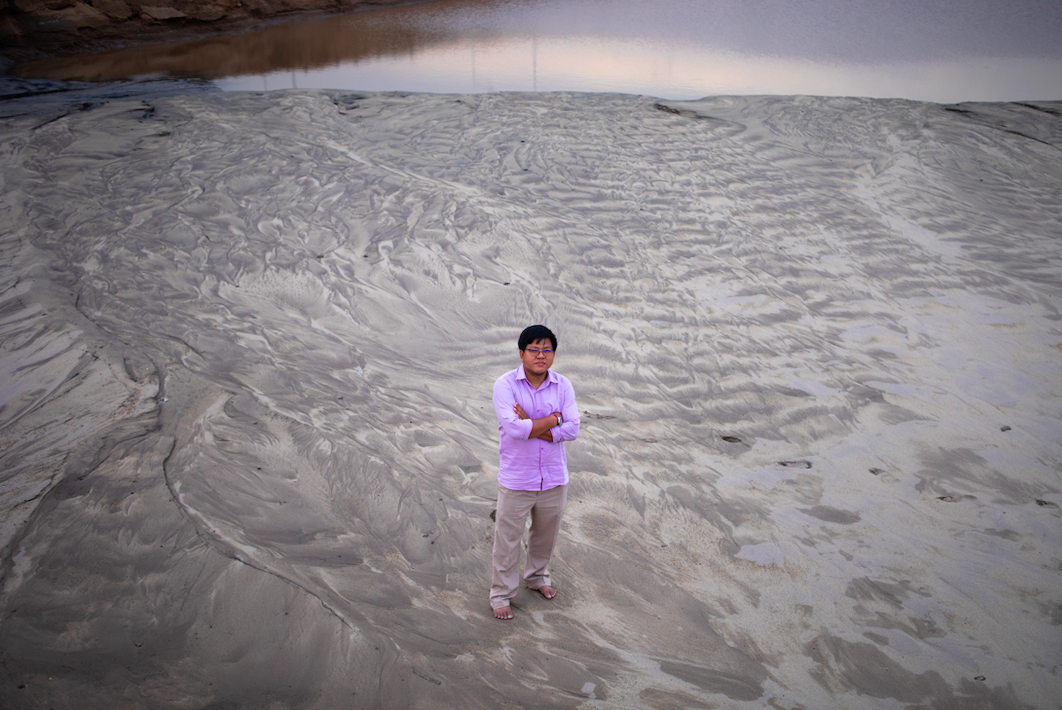For humans, the prospect of ever-worsening climate change raises questions about where to live, what to eat, and how to go about day-to-day life.
But what about other species? Unlike homosapiens, most organisms have a hard time adapting to new circumstances. As a result, the increasing pressures of climate change, habitat loss, and pollution are overwhelming local animal and plant populations worldwide.
In fact, more than two-thirds of wildlife has disappeared in a 50-year span because of these pressures, according to a study by the World Wildlife Foundation.
Over the next few decades, millions of species could be wiped out, gone save for genetic traces in test tubes, in what would be the fastest mass extinction in recorded history.
But that’s not inevitable. Humans can still reverse trends of destruction to protect the global environment and ensure the long-term survival of our Earthly neighbors. The bulk of this work has to take place at the society-wide level, with governments investing in climate action and joining the effort to protect at least 30% of the planet by 2030.
But there’s also a lot of things you can do to help out. Here are six simple ways you can protect nature and help wildlife thrive in your neighborhood.
Plant Trees

Whether you live in a city, suburb, or rural area, there’s a good chance that the environment around you has been degraded by human development and pollution in one way or another. By planting trees, you can help create healthier habitats for wildlife. Trees improve soil, air, and water quality, pull carbon dioxide from the atmosphere, provide habitats and food, and protect areas against natural disasters. As they set roots and grow, they heal what has been damaged.
You can connect with local tree-planting groups or seek out larger organizations like 1t.org that can help you get started.
Plant Wildflowers

Insect populations are plunging worldwide for various reasons, including a lack of suitable habitats. As humans have expanded cities and towns, forests, meadows, grasslands, and other insect habitats have been destroyed. It’s a vicious cycle with grave implications.
But you can help slow this decline in your neighborhood by planting wildflowers in backyards, community gardens, the edges of roads, and even in pots on your windowsill. Once the flowers take root, nature takes over. Pretty soon, you’ll have bees, butterflies, and other insects visiting the flowers to get nutrients. Newly doused in pollen, these bugs will then start the cycle of pollination, helping to bring wildflowers elsewhere.
You can find resources on flower planting from organizations like The Meadow Project.
Start a Fruit and Vegetable Garden

If you’re planting flowers, you might as well start a garden. No matter how much space you have, you can at least tend to a few herbs to improve the flavor of your salads. If you have more space, why not grow some tomatoes and berries? There are tons of YouTube videos and other digital resources that explain in step-by-step detail the process of growing fruits and vegetables.
By starting a garden, you’ll be improving local soil health and air quality. If some enterprising animal happens to nibble at or even devour your plants, well, they need to eat, too. After all, this garden is meant to improve the health of all wildlife.
Minimize Your Use of Chemicals

The household chemicals we use on a daily basis — from cleaning supplies to body sprays — seep into the environment and poison wildlife. The good news is that none of them are essential. The nonprofit Environmental Working Group has created dozens of consumer guides for helping people find safe alternatives for everything from bug spray to face cream to cleaning supplies.
More harmful than household chemicals are the pesticides people spray on their lawns and gardens and the chemicals deployed by industrial agriculture. One of the most common consumer pesticides in the world — Roundup — is being pulled from US shelves because of its cancer-causing effects. Instead of spraying chemicals on your lawn, you can simply let it be or plant crops that deter specific insects.
Become a Waterkeeper

Water is key to the health of wildlife. Yet nearly all bodies of water have been depleted and polluted. Now the effects of climate change are further altering water availability and quality.
You can support the health of local lakes and reservoirs, rivers and coastlines, by becoming a waterkeeper. The international nonprofit Waterkeeper Alliance supports environmental organizers around the world as they oppose water pollution, conduct clean-ups, and advocate for the protection of water.
Call on Politicians to Take Environmental Action
From a planetary perspective, protecting the environment requires governments to stop harmful industries, invest in conservation and restoration efforts, and accelerate climate action.
But citizens have to demand these changes, otherwise the status quo of environmental degradation will continue long into the future. Calling, writing a letter, sending a tweet — there are many ways you can make sure local, state, and federal politicians know your feelings about the environment. The Global Citizen app is a great place to get started taking action.
You can also join demonstrations to ratchet up the pressure on certain issues and ultimately wield the power of your vote to elect candidates in favor of the planet.
You can join the Global Citizen Live campaign to defeat poverty and defend the planet by taking action here, and become part of a movement powered by citizens around the world who are taking action together with governments, corporations, and philanthropists to make change.
